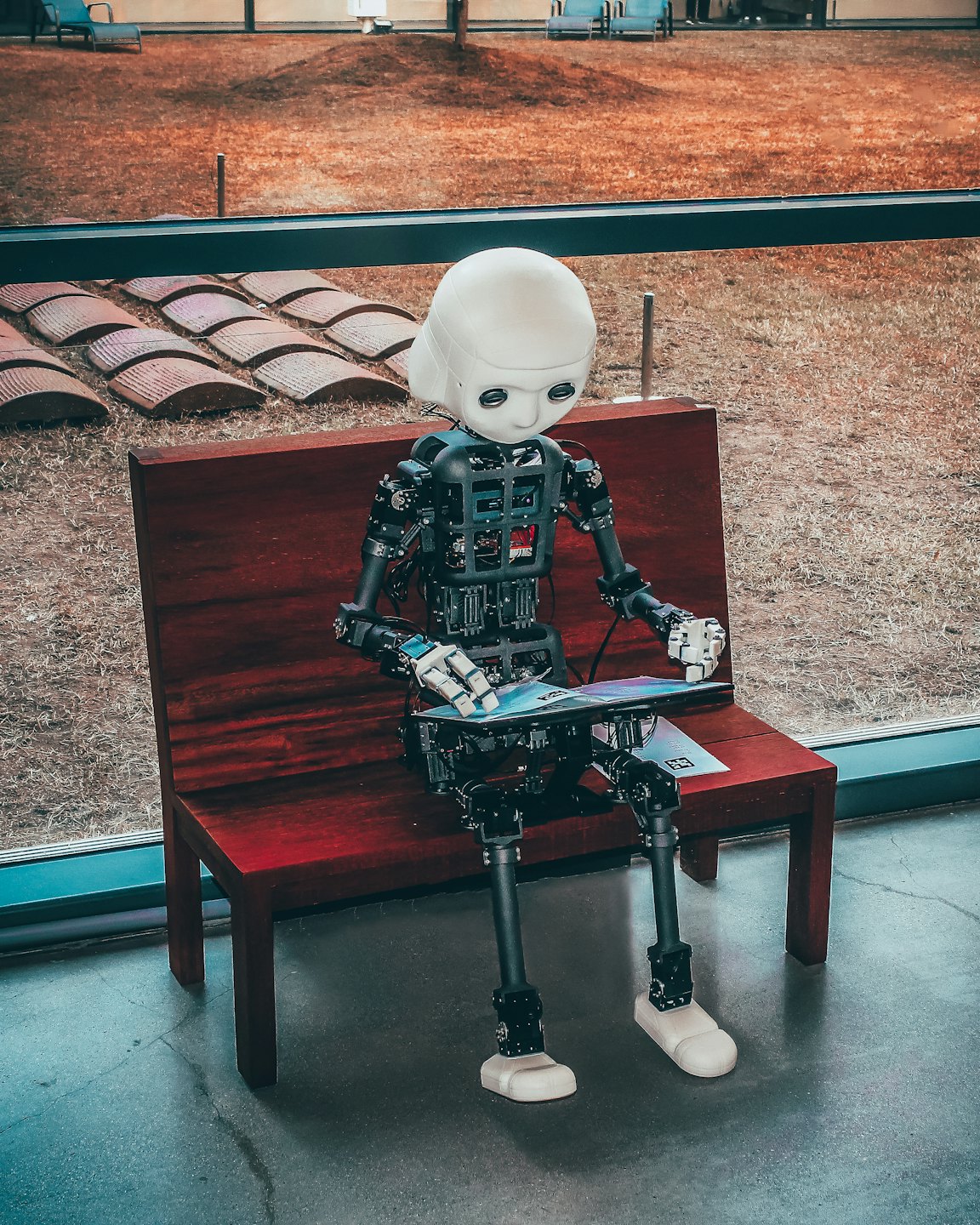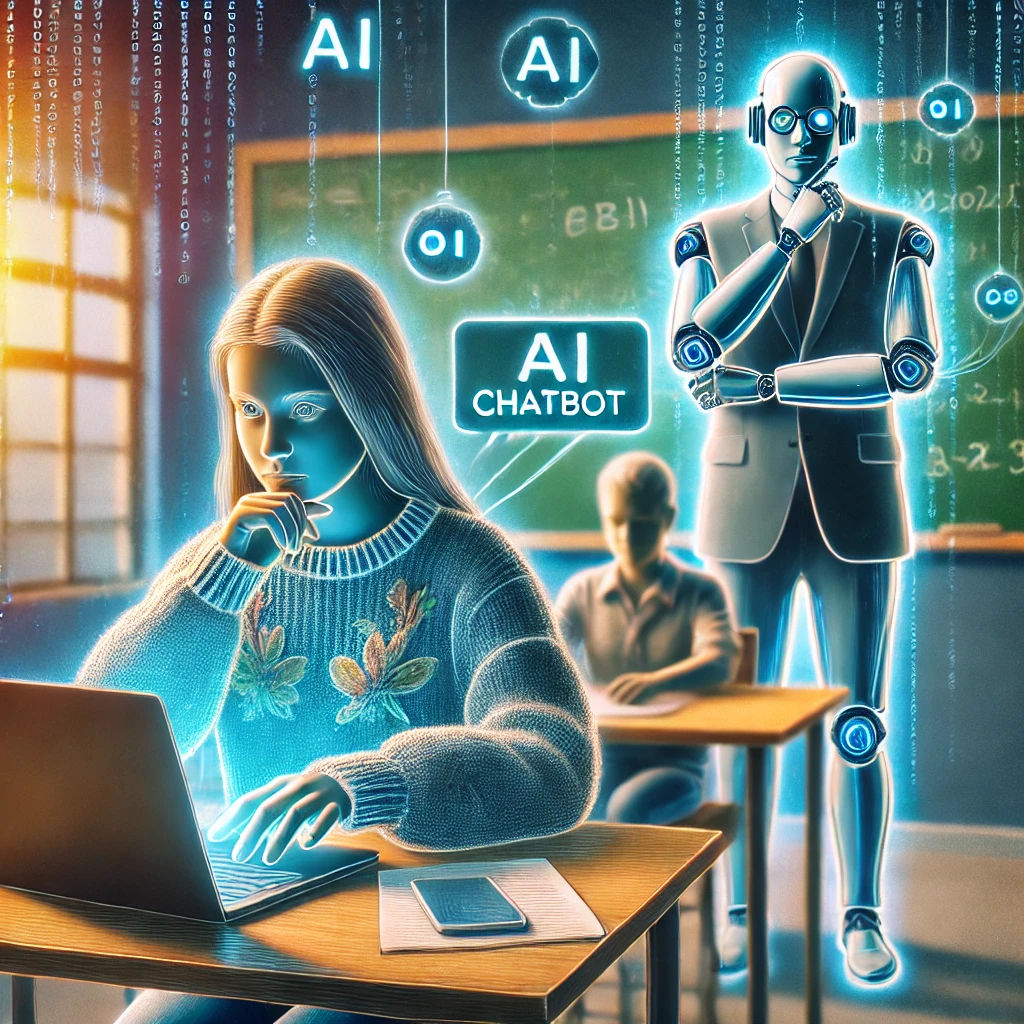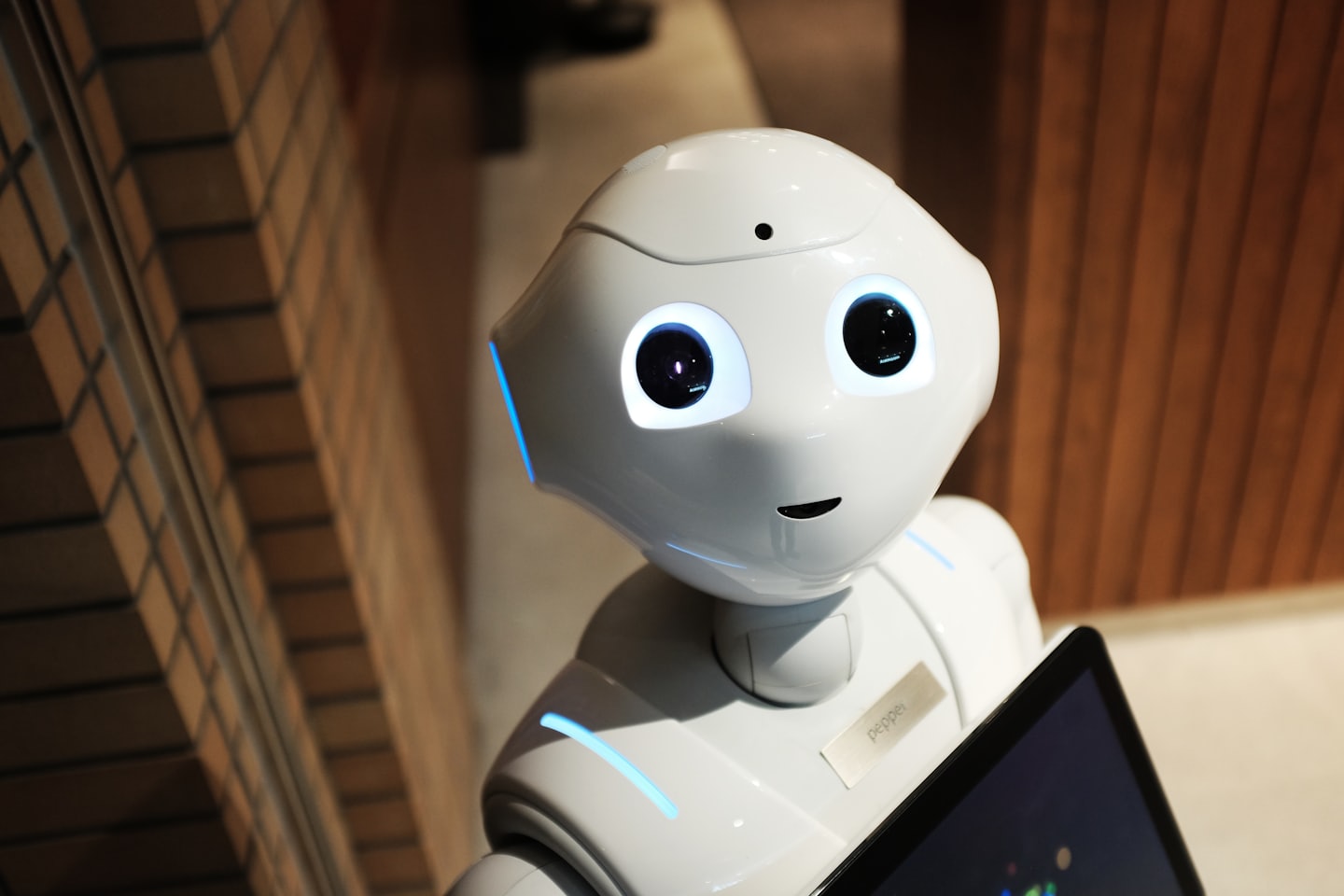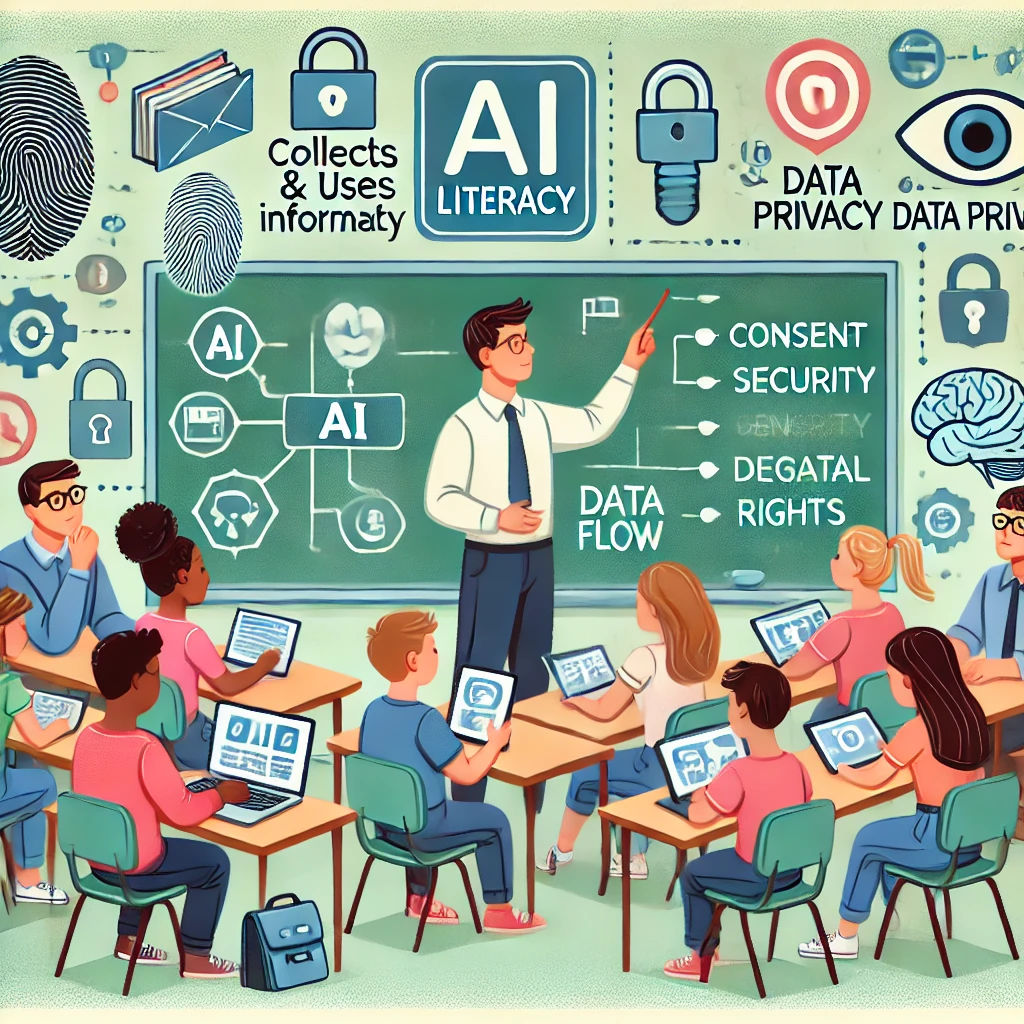
Building Fair AI Together
Artificial intelligence is transforming how we learn, work, and live but its impact depends on how we use it. Our mission is to equip educators and students with the technical skills and ethical awareness needed to harness AI responsibly.
Ethical AI
By teaching ethical AI today, you’re helping design tomorrow’s human-centric tools, not just reacting to them.
Artificial Intelligence (AI) is a powerful tool, but its ethical implications demand our attention. One of the most crucial ethical considerations is bias in AI decision-making. AI systems learn from data, and if that data reflects societal prejudices, the AI can reinforce and amplify them leading to discrimination in hiring, lending, policing, and healthcare. Ethical AI requires transparency, accountability, and fairness. Developers must rigorously test for biases, ensure diverse datasets, and implement oversight mechanisms to prevent harm. As users, we must question AI-driven decisions, advocate for responsible AI policies, and remember that technology should serve humanity, not the other way around.
Another critical ethical issue in AI is privacy and data security. AI systems rely on vast amounts of personal data to function effectively, from search histories to facial recognition. However, without proper safeguards, this data can be misused leading to surveillance, identity theft, or unauthorized profiling. Companies and governments must prioritize data protection laws, user consent, and encryption to ensure AI respects individual privacy. Additionally, users should stay informed about how their data is collected and challenge unethical AI practices. Ethical AI isn’t just about what technology can do, but about ensuring it operates in a way that respects human rights and freedoms.
Also, crucial ethical concern in AI is autonomy and human responsibility. As AI systems become more advanced, they are increasingly making decisions that affect people’s lives such as approving loans, diagnosing diseases, or even driving cars. But who is accountable when AI makes a mistake? Ethical AI requires that humans remain in control, ensuring that AI assists rather than replaces human judgment in critical areas. Developers and policymakers must establish clear guidelines for responsibility and create fail-safes to prevent AI from making unchecked decisions. At the end of the day, AI should be a tool that empowers people, not a force that diminishes human agency.

When discussing AI ethics it’s important to emphasize both the opportunities and responsibilities that come with using AI. Here are a few key points:
- AI and Fairness in Education
AI is increasingly being used in education whether in grading systems, personalized learning, or admissions processes. However, if AI models are trained on biased data, they can reinforce inequalities, favoring certain students over others. Teachers and students should advocate for transparency in AI tools and ensure that AI enhances fairness rather than creating new barriers. - Academic Integrity and AI Assistance
With AI tools like ChatGPT, students have powerful resources at their fingertips. But should AI be used for writing essays or solving math problems? Educators and students must discuss ethical guidelines for AI-assisted learning when does AI support learning, and when does it become academic dishonesty? The goal should be to use AI as a tool for understanding and creativity, not just as a shortcut to answers. - Digital Literacy and Misinformation
AI-generated content is becoming more sophisticated, making it harder to distinguish real information from fake. Students and teachers must develop critical thinking skills to assess the credibility of AI-generated texts, images, and videos. Teaching students to question sources and verify facts is essential in an AI-driven world. - AI and Future Careers
Students entering the workforce will interact with AI in almost every industry, from healthcare to business to art. Understanding ethical AI development, responsible AI usage, and the social impacts of automation will be crucial skills. Educators can help students explore not just how AI works, but how it should be used responsibly in society.

Chat with the Future: Train Your AI Instincts
Test-drive our interactive chatbot to uncover how AI thinks and learn to use it responsibly.
What Will AI Change in the Future?
Daily Life, Work & Economy, Education, Environment, Healthcare Revolution, Democratizing Knowledge, Creativity & Art. Want to dive deeper into any area?
AI is set to revolutionize nearly every aspect of our lives, from how we work to how we interact with technology. In the future, AI will automate repetitive tasks, freeing up time for more creative and strategic work. Industries like healthcare will see breakthroughs in personalized medicine, early disease detection, and robotic surgery, while education will benefit from AI-driven tutoring and adaptive learning systems that cater to individual students. Transportation will be transformed by self-driving cars and smart traffic management, reducing accidents and congestion. However, with these advancements come challenges job displacement, ethical concerns, and the need for responsible AI governance. The future of AI is not just about what it can do, but about ensuring it serves humanity in a fair, ethical, and beneficial way.
Of course! Another major change AI will bring is in how we interact with technology and information. AI-driven assistants will become more intuitive, understanding human emotions and context better than ever before. This means smarter virtual assistants, more personalized recommendations, and seamless automation in everyday life from managing our schedules to optimizing how cities operate with AI-powered traffic control and energy grids.

AI will also reshape creativity and entertainment, assisting in everything from music composition to film production and digital art. While some fear that AI will replace human creativity, it’s more likely to become a powerful collaborator, helping artists and writers generate new ideas faster and explore creative possibilities they might not have considered on their own.
At the same time, AI’s role in decision-making and governance will expand, aiding governments in data-driven policy-making, predicting economic trends, and improving public services. However, this raises critical ethical concerns who ensures AI’s decisions are fair? How do we prevent biases from creeping into automated systems? The challenge of the future will not just be what AI can do, but how we choose to use it responsibly to benefit humanity as a whole.
Promoting responsible and mindful AI education…
… is essential to ensuring that future generations understand both the potential and the risks of artificial intelligence
Educators must go beyond teaching how AI works they should foster critical thinking, ethical awareness, and digital responsibility. Students should learn to question AI-driven decisions, recognize biases in algorithms, and understand the societal impact of automation. Schools and universities must emphasize transparency, fairness, and accountability in AI development, ensuring that technology serves humanity ethically. By integrating discussions on privacy, misinformation, and AI’s role in shaping the future, we can empower students to become not just users, but conscious and responsible innovators in the AI-driven world.
AI education should not only focus on technical skills but also on ethical decision-making. As AI becomes more integrated into daily life, students must be taught to consider the consequences of AI-driven choices whether in social media algorithms, automated hiring, or law enforcement systems. Schools should incorporate real-world case studies where AI has led to both positive and negative outcomes, helping students analyze the importance of bias detection, fairness, and inclusivity in AI models.
Additionally, AI literacy should include understanding data privacy students must learn how AI collects and uses personal information, emphasizing the importance of consent, security, and digital rights. Responsible AI education means equipping young minds with the tools to question, regulate, and innovate AI technologies in a way that aligns with human values and societal well-being. By fostering a mindset of accountability and ethical leadership, we can ensure that future AI developers and users contribute to a world where AI benefits everyone, rather than just a privileged few.


Simone
Professional Photographer, World Adventurer, and Data Scientist
Simone turns ordinary photos into magic. AI helps them tweak colors, remove annoying backgrounds, and even brainstorm wild new ideas. ‘It’s like having a creative sidekick!’ they say. Their art mixes real life with a touch of digital fantasy.

Dino
OpenSource IT Expert
With 20+ years in IT infrastructure, Dino ensures systems run flawlessly. By automating routine maintenance with AI tools, they’ve boosted server efficiency by 40%. Their mantra: ‘Technology should serve humans, not the other way around.’ AI has transformed their workflow now they focus on strategic innovation, not just troubleshooting.”

Erasmo
Ironman & Swimmer, Cloud Expert
isn’t just crazy fit they’re also a tech geek! They use AI apps to track their workouts, fine-tune their swimming technique, and even guess when they might get injured. ‘It’s like having a coach in your pocket,’ they say. Now they help others train smarter, not harder
Ethical Innovators
AI isn’t just code, it’s a force that shapes societies. Without guidance, it can reinforce biases, violate privacy, or harm the environment. But with the right education, we can turn AI into a tool for justice and creativity
Practical Implementation: AI-Powered Sports Guidance Find Your Perfect Match
Choosing the right sport can be overwhelming, but AI makes it simple and personalized. Our interactive chatbot acts as your virtual sports consultant, analyzing key factors like your age, fitness level, preferred environment (indoor/outdoor), and even personality traits (e.g., competitive vs. relaxed). By answering a few questions such as “Do you enjoy using equipment?” or “Are you more drawn to teamwork or solo challenges?” the system cross-references your inputs with data on physical demands, injury prevention, and local accessibility to recommend ideal sports.

For instance:
- A tech enthusiast might discover e-sports or drone racing, combining physical coordination with gadget interaction.
- Someone with joint concerns could be guided toward swimming or cycling, with AI noting low-impact benefits.
- A natural sprinter might get matched to soccer or sprinting, with tips on local clubs.
Beyond suggestions, the chatbot provides:
🔹 Beginner tips (equipment, training frequency)
🔹 Safety insights (common injuries and how to avoid them)
🔹 Local resources (nearby facilities, trainers, or beginner classes)
This tool exemplifies AI’s role in democratizing expert knowledge helping users make confident, health-conscious choices while fostering lifelong passion for movement.
Artificial Intelligence is revolutionizing sports at every level, from amateur training to elite competition. AI-powered wearables and video analysis tools now provide real-time feedback on an athlete’s technique, optimizing performance while reducing injury risks. For example, computer vision tracks a swimmer’s stroke efficiency, suggesting micro-adjustments to shave seconds off lap times. Machine learning predicts fatigue and overtraining, helping coaches personalize workouts. Even refereeing has evolved, with AI-assisted systems like VAR reducing human error in critical decisions. Beyond performance, AI enhances fan engagement through data-driven broadcasts and virtual reality experiences. The future? Smarter, safer, and more inclusive sports, powered by intelligent technology.
